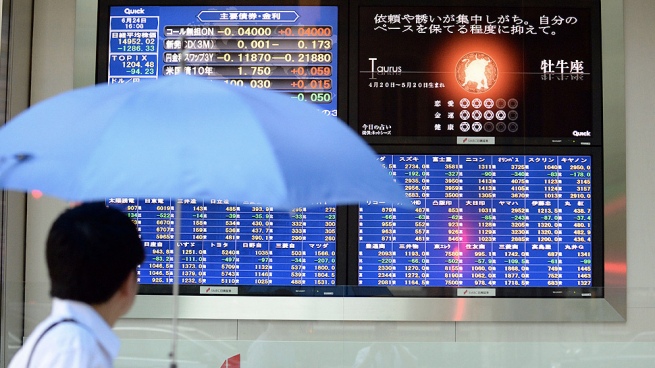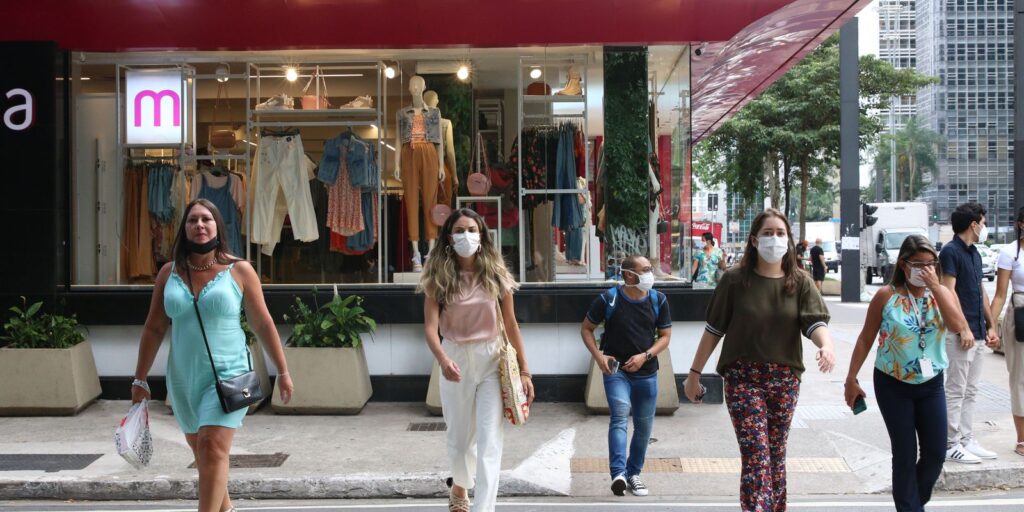The main stock markets in Asia and Europe, oil and commodities such as steel and iron, registered sharp falls this Monday due to fear of the economic impact due to a tightening of the “zero-covid” policy in China.
After reporting a total of 26 cases in Chaoyang, Beijing on Monday ordered a massive test of the 3,500,000 residents of the district. -the most populous in the city-, generating concern that the Chinese capital faces a situation similar to that of Shanghai, where 25 million people have been confined for weeks, according to the AFP news agency.
The government announcement caused panic among the inhabitants of Beijing, who went to stock up on groceries at supermarkets to face a possible total quarantine.
The measures created a drop in the CSI 300 (index that includes the 300 main papers of the Shanghai and Shenzhen stock markets) of 4.94%, the worst day since February 2020, while the yuan fell to its lowest level in 17 months for fear of capital flight.
In the same way, the stock markets of Hong Kong (Hang Seng) and Japan (Nikkei) fell 3.3% and 1.5%, respectively.
The falls in Asia also had their echo in Europe, where the main stock markets were operating with declines of more than 1%.
For its part, negative sentiment spreads to oil, which registered falls of 4.43% and 4.41%, in the case of WTI and Brent barrels, which this morning reached a value of US$97.65 and US$101.95 a barrel, respectively.
Although in recent days the possibility of a European embargo on Russian oil remained an upward factor in the price of crude oil, the value was contained by the prospects of a drop in demand from China, the world’s main importer. .
Chinese demand for some fuels (such as gasoline, diesel and jet fuel) has already fallen 20% annually this month, according to sources at the Chinese Ministry of Energy.

In additionthe losses extended to some metalliferous commodities such as steel and iron ore, which recorded declines of up to 11%.
Although the figures are still insignificant compared to those of Shanghai, Beijing has already ordered the confinement of more than a dozen residential buildings in addition to strict controls on entering the city, including the requirement to present negative tests.
“There are concerns that the Covid-19 situation in Beijing will become what is happening in Shanghai with prolonged quarantines that affect the economy,” Kevin Li, an investment specialist told the Bloomberg agency.
The outbreak in Shanghai, which intensified at the end of March, produced more than 400,000 registered infections and 138 deaths.
Also, outside of Shanghai and Beijing, more than 20 cities (encompassing more than 30 million people) are currently under quarantine.
The fear in the markets for the new confinements in China adds to the concern about the signs of an economic slowdown in the country governed by Xi Jinping, in addition to the expectation that the US Federal Reserve (FED) will make a strong rise of 50 percentage points at its monetary meeting next week, which already caused the worst day in the Dow Jones since October 2020 on Friday.
Also, although the People’s Bank of China (the central bank of that country) promised a policy to stimulate the economy and stabilize the market, the words have not yet translated into actions that manage to calm the market.
Although the entity reduced bank reserves and promised to help small and medium-sized companies, it did not modify the reference interest rates as expected.


















